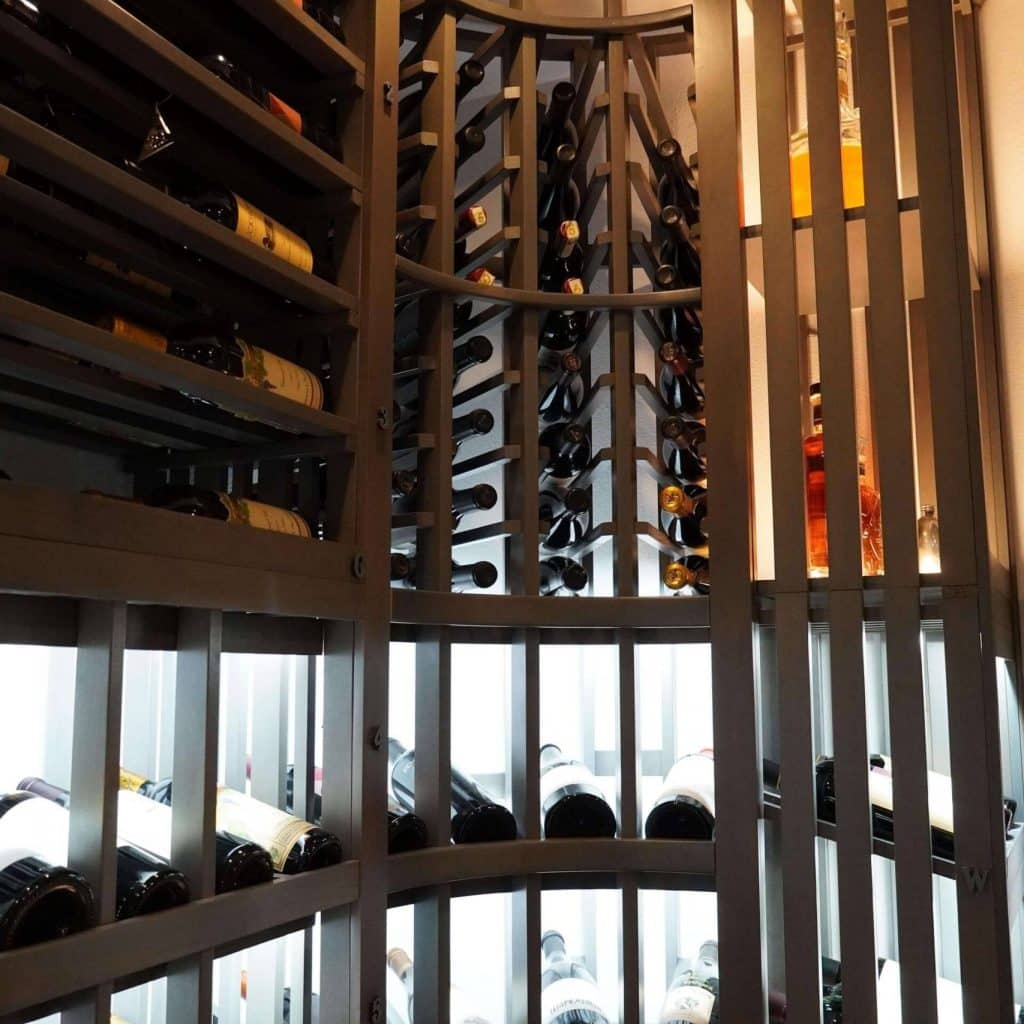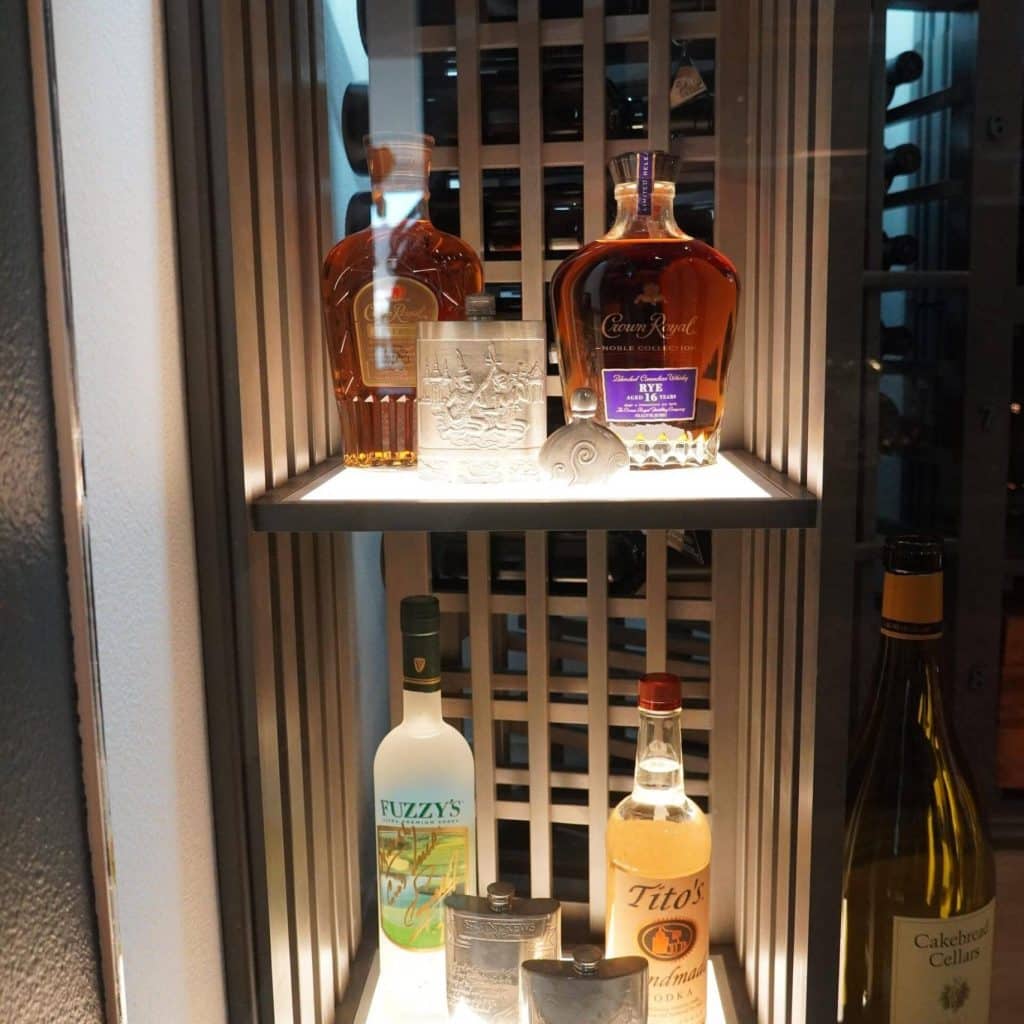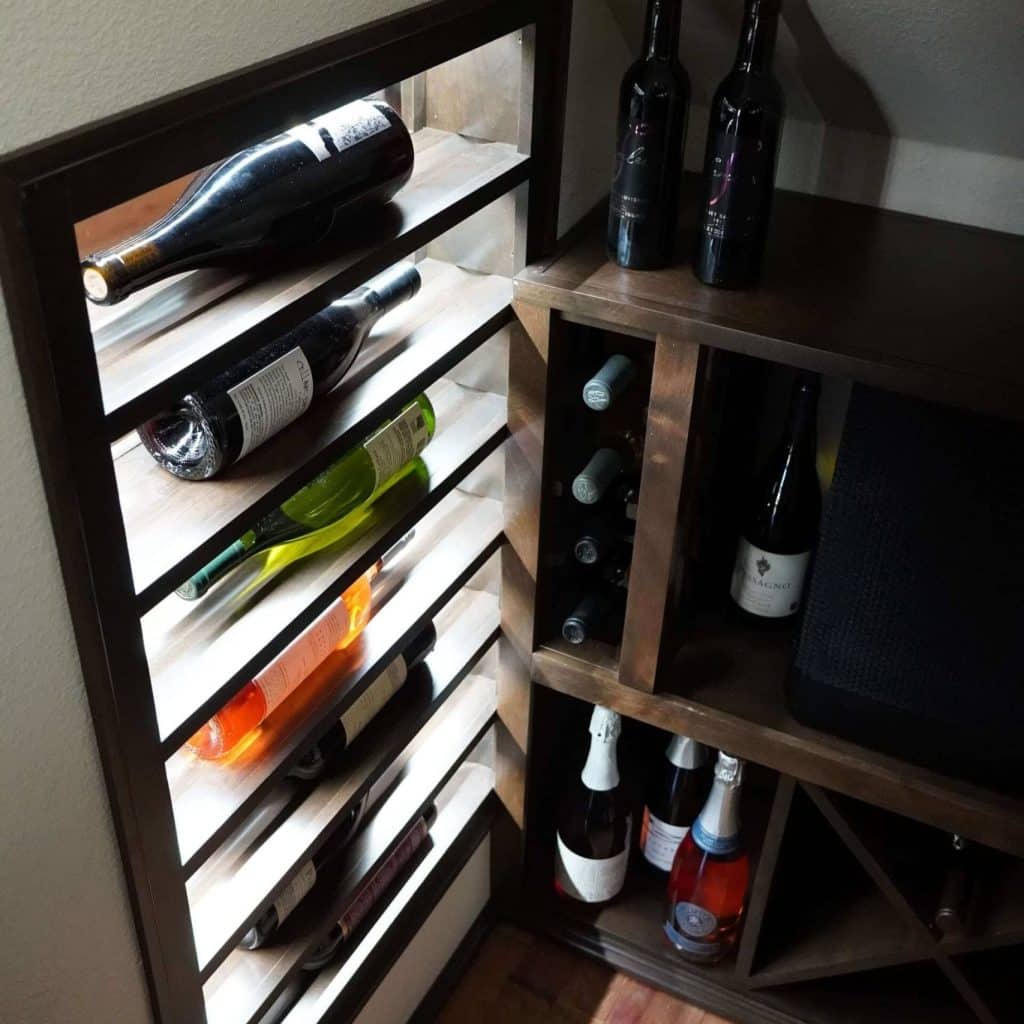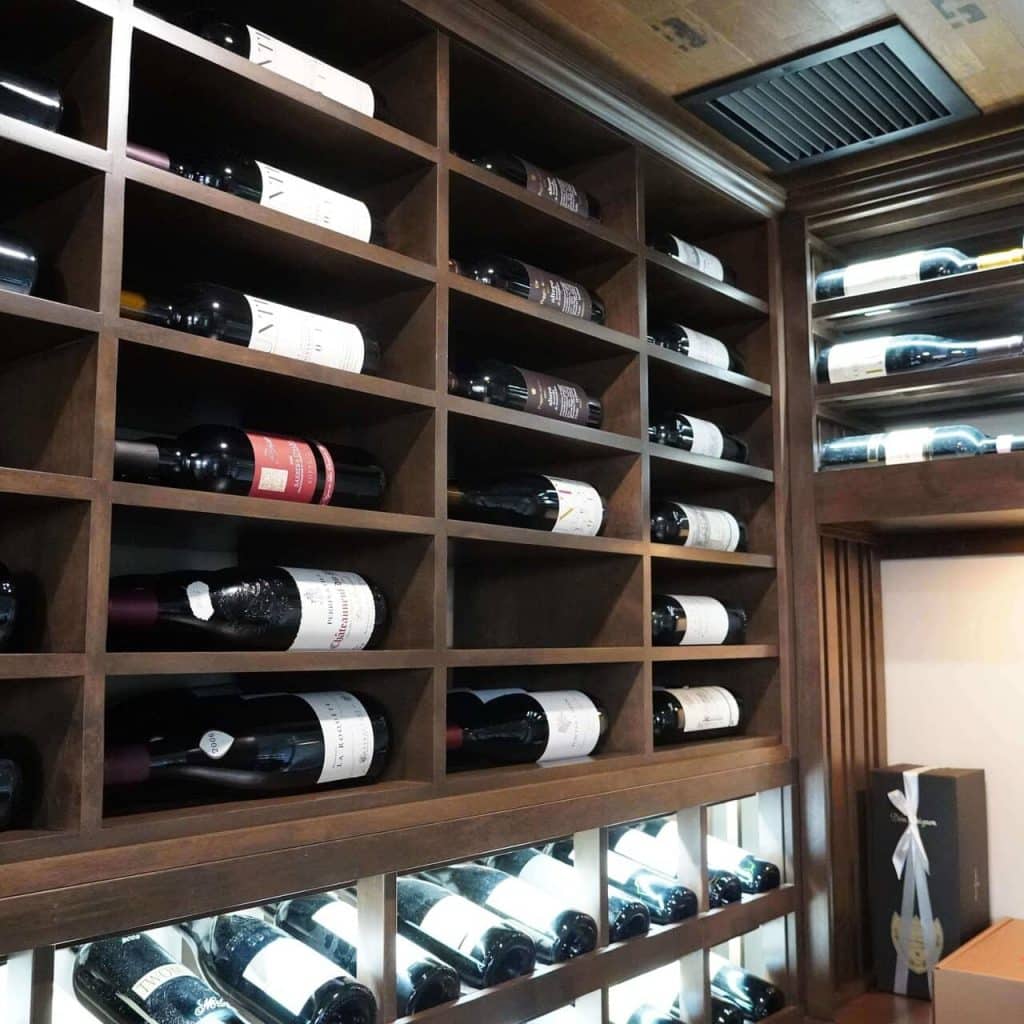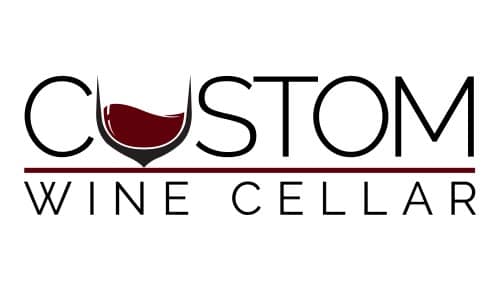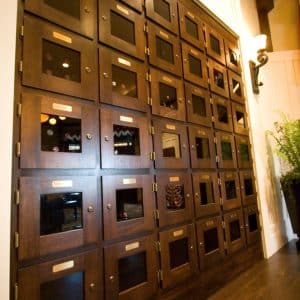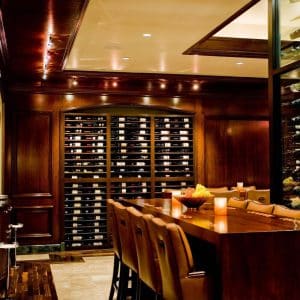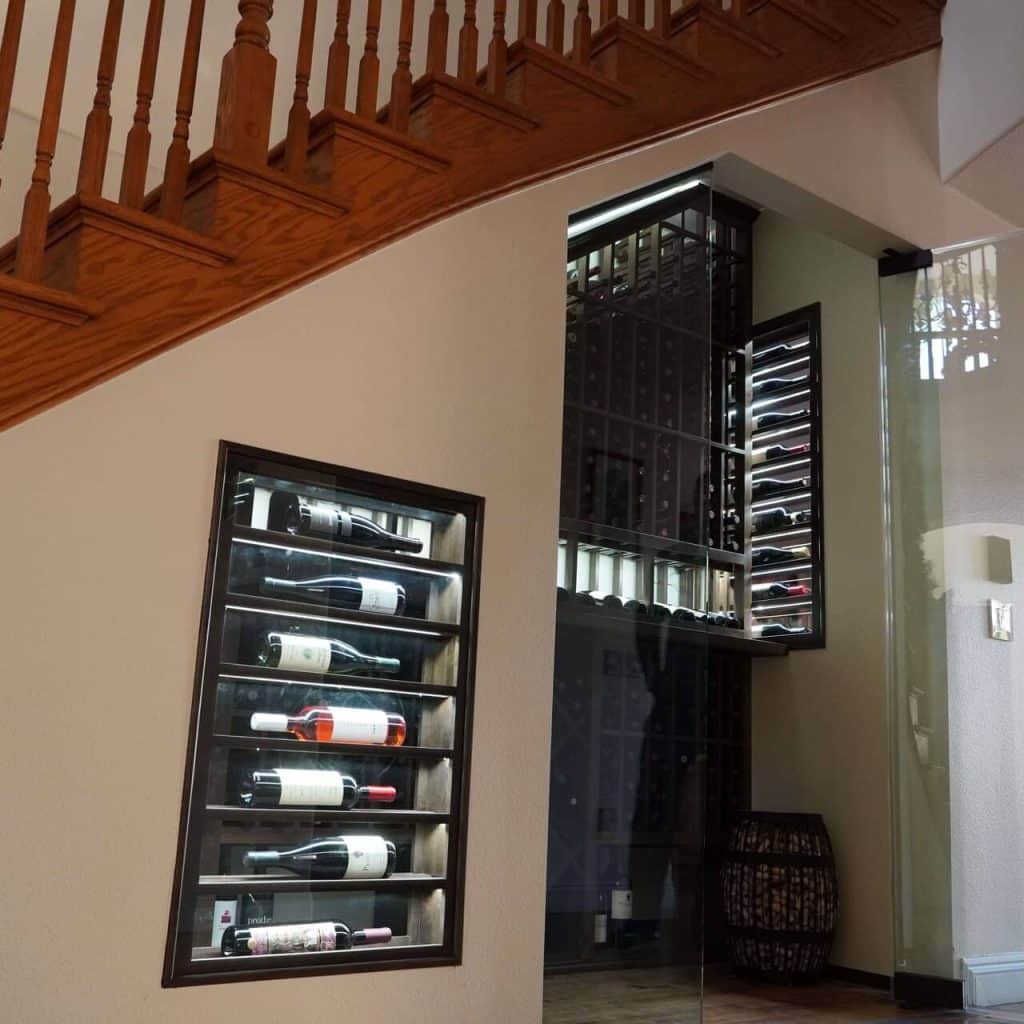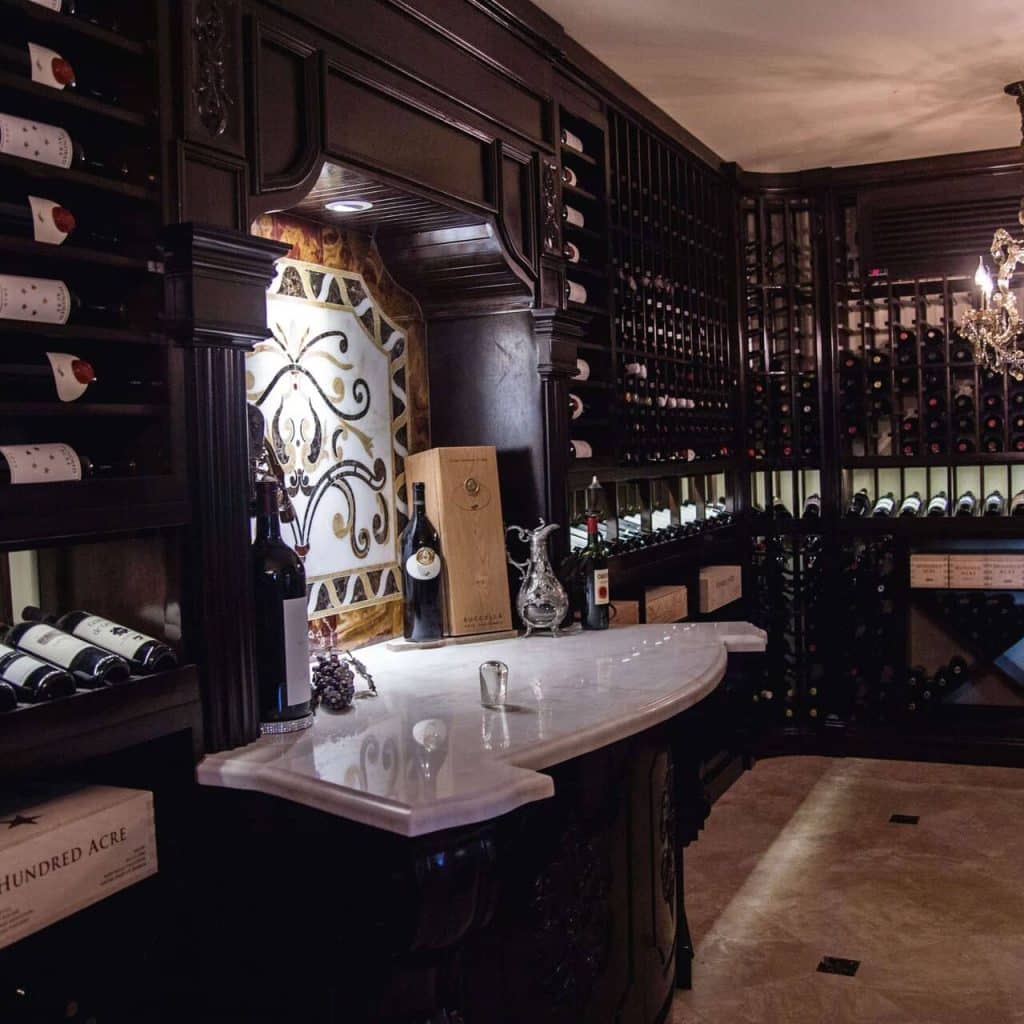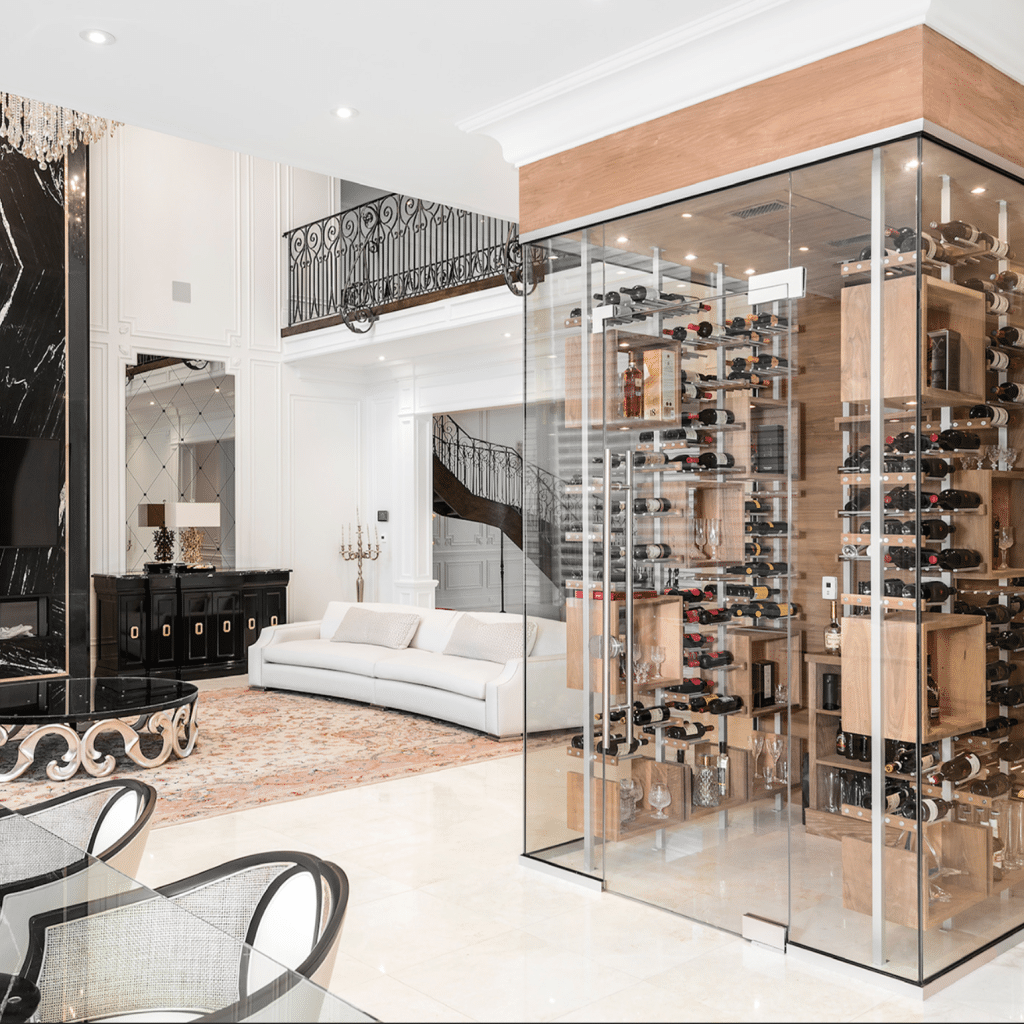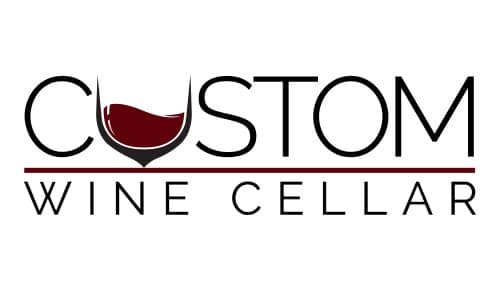Refrigeration Systems And Units
Four primary factors must be considered when choosing the best wine cellar cooling system.
-
Is it necessary to have wine cellar refrigeration systems?
Short Answer: Yes, the majority of the time it is necessary because not only does it keep the right temperature, but it also maintains the right humidity.
-
What are the different types of wine cellar refrigeration systems?
Short Answer: There are several types of wine cellar refrigeration systems, including
- self-contained cooling system
- split cooling system
- ducted cooling system
- split e-cool cooling systemThese different systems can be water-cooled or air-cooled depending on the set-up and nature of the wine cellar refrigeration system.
-
What are the best brands of refrigeration units?
Short Answer: This is entirely subjective, and can range from local providers to well-known, name brands. The key is to look at their customer service policy, their reviews, and how long they have been in business.
-
What about the elements of a refrigeration system?
Short Answer: Like domestic refrigeration systems, wine cellar cooling units will generally utilize refrigerant/coolant, a compressor, a condenser, and an evaporator.
Does Your Wine Cellar Need Refrigeration?
There appears to be a lot of expense involved with installing a refrigeration system in a wine cellar. Could I be saving money by avoiding the installation of a refrigeration unit if the basement in my home is pretty cool?
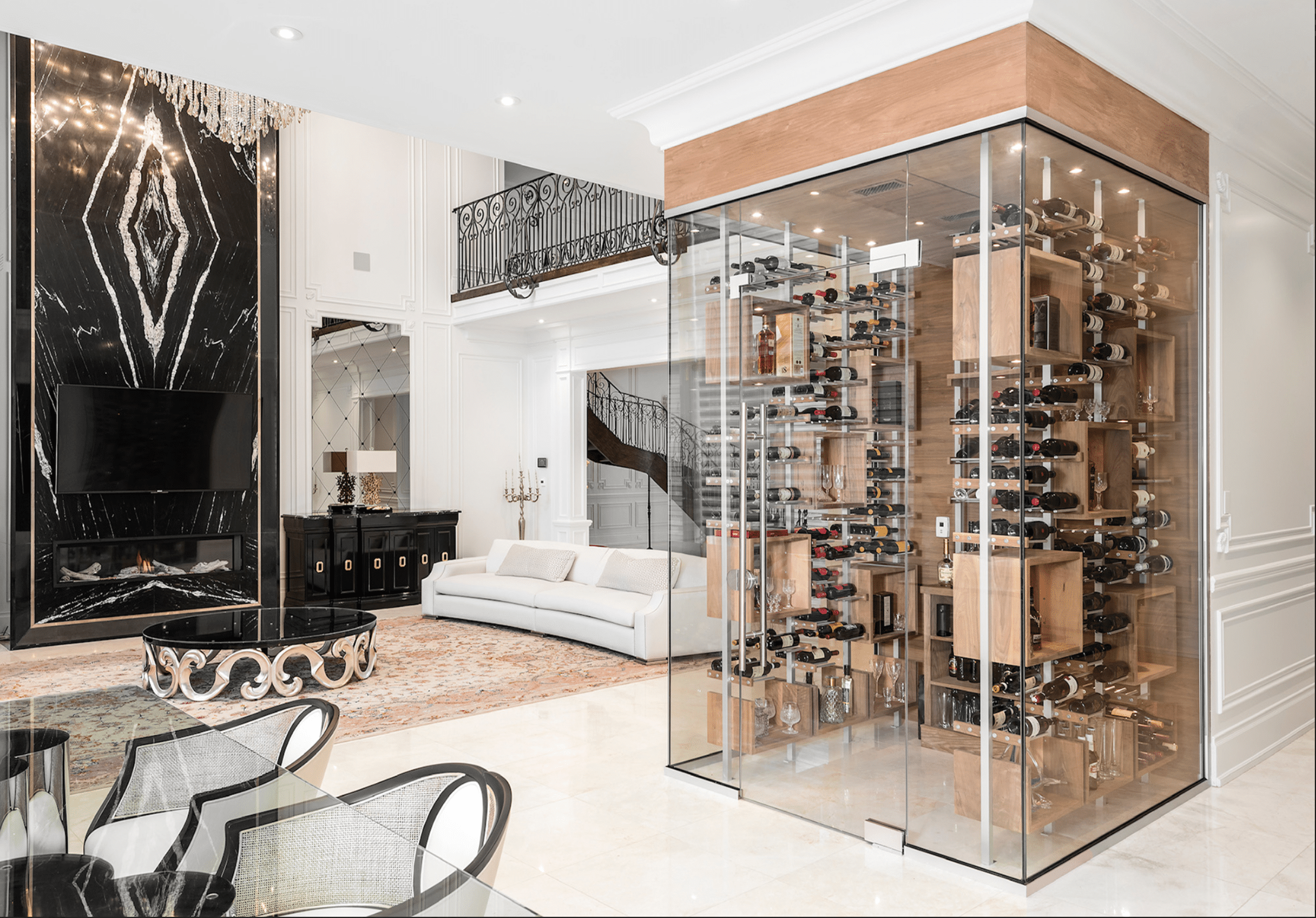
Wine cellars serve primarily to age and store wine over a long period of time. The reason for constructing and installing wine cellar refrigeration systems is for this very reason. If you plan to store inexpensive wine for a few days or a week, maintaining the perfect temperature may be overkill.
However, if you are a wine collector, you will have a significant collection of wines from around the world. Some of the most popular vintage wines come from France, Argentina, Germany, and Australia, not to mention California. The value and prestige of such wines add up over time, sometimes over many years.
It is important to keep wine in the right environment to allow it to age well. Maintaining the right temperature AND humidity for your wine collection keeps it protected.
The longer the timeframe, the higher the chances of the wine being damaged or completely destroyed by being stored in an environment that’s too hot, too cold or messed up by constant fluctuation over years.
Temperature in a Wine Cellar
The average temperature in residential homes and commercial establishments fluctuates far more than most people realize. These fluctuations occur even in cellars built in the basement. Despite day-night fluctuations being mostly cool for much of the time in the basement, it’s not ideal for aging wine. This simply means that building a wine cellar there may be a bit more efficient.
It is common for home temperatures to differ by up to 20 degrees Fahrenheit between day and night. The temperature in commercial buildings can vary even more dramatically. In addition to air conditioning and heating throughout the year, the temperature can also differ significantly based on the time of year.
Humidity Can Be Just As Important
Humidity is often one of those overlooked factors into keeping your wines safe, secure, and in pristine condition. But why does it matter? It actually is important for keeping the cork properly sealed. Moisture in the air can impact the seal that cork has within the bottle, and if it is too dry or too moist, you’ll end up with air seeping into your wine aging it slowly over time.
Especially in drier climates, this really can impact the long-term life of your wine.
When exposed to changes in humidity as the temperature changes, wine corks can become damaged if the variation is sustained over a long period of time. It is because of this that a serious wine collector should consider the cellar climate control system as part of their collection. By managing humidity and temperature, a refrigeration system becomes a climate control system. Furthermore, dampness can cause mold problems in wine corks. It is both common and insidious to have these problems in a wine cellar that is ill designed. The effectiveness of underground cave storage compared with other locations has historically been much higher. It was therefore o served that wine remained reliable when stored in the highly stable environments associated with underground storage. Temperatures deep underground tend to stay between 50 and 55 degrees, no matter where they are located or what the outside temperature is. Our wine cellar storage rooms are designed to simulate an environment similar to a cave.
These Factors Combine To Create An Environment Actively Hostile To Aging Quality Wines For Long Periods Of Time.
Temperature and humidity are the biggest factors that create a “hostile” environment for your wines in a subtle way your eyes may not notice.
So, What Is The Optimal Temperature And Humidity For Storing Wine
It has long been agreed that the optimal storage and aging temperature for wine should be 57 degrees Fahrenheit with a humidity level of 55% and does not vary more than +/-5%.
Climate control is the system that takes into account all the components that determine the temperature and humidity of the wine cellar. A poorly designed wine cellar refrigeration unit can cause excessive running costs, mold growth, irritation noise, and ultimately failure of the mechanical systems inside the unit itself.
It has been somewhat common for us over the last 20 years to encounter all of these problems. Sad to say, all of these could have been prevented. It is not uncommon for the cost cutter and or the generalist to build a poor wine cellar. In the worst case scenario, it can lead to an irreplaceable collection of wine, acquired over years, being a disappointment or even destroyed.
Refrigeration and humidity control units are the mechanical components of a wine cellar climate control system. The whole system, however, is a combination of all those factors plus a few more. Insulation, vapor barrier, and the surrounding walls and ceiling are all included in this. Wine cellar doors are a part of the whole system that are often overlooked. The poor sealing of the door can result in the refrigeration unit running too long or in temperature fluctuations. Using the incorrect type of lighting in the cellar can also produce a lot of heat, especially if left on accidentally.
Refrigeration Systems
Refrigeration in wine cellars is different from air conditioning under HVAC systems. It is a device that maintains a constant temperature and humidity level in a sealed room, usually between 50 – 55 degrees F. The system is similar to the cooling unit of a refrigerator rather than the HVAC system.
It is usually a clear sign that the cooling system is mismatched to the room if it keeps failing, dripping water, or working all the time. The type of cooling systems needed for a wine cellar isn’t just determined by the size of the cellar but also by its construction. The workload of the cooling system can be affected significantly by, for instance, the use of glass walls, large double doors, outside walls, ceilings, flooring, and insulation.
A proactive maintenance program should be in place for every cooling system. Airplanes don’t stay in the air because engineers wait for something to go wrong before taking action. Regular maintenance should also be performed on the refrigeration system:
To become a member of the Custom Wine Cellar, what should a wine cellar builder do?
- Experience in constructing wine cellars in a proper manner is the first thing you need
- Have published wine cellar projects that have been completed
- Be well reviewed by their clients
- Participate in the Custom Wine Cellar in order to promote their work
To Become A Member Of The Custom Wine Cellar, What Should A Wine Cellar Builder Do?
- Experience in constructing wine cellars in a proper manner is the first thing you need
- Have published wine cellar projects that have been completed
- Be well reviewed by their clients
- Participate in the Custom Wine Cellar in order to promote their work
A Member Of Custom Wine Cellar Has What Benefits?
- Best practices for wine cellar construction
- Promoting their portfolio of successful projects and happy customers
- Directory listings for Custom Wine Cellar
- Support for marketing and promotion
Having Troubles with your Wine Cellar Refrigeration? Trust Experienced Professionals
Wine cellars, from design to build to wine cellar refrigeration, is what we do. It’s what we have lived and breathed it for over 20 years, and we know the little differences that matter and make perfection.
Wine cellar refrigeration and cooling is something you shouldn’t ever have doubts on. No mechanical system is perfect, but the way it is installed, the amount of power needed, and the system for your space can be perfectly chosen.
If you are having issues with your wine cellar not cooling properly, your wine cellar refrigeration system vibrating or making weird sounds, or even making sure you have the right wine cellar cooling unit for your wine cellar design, give us a call at (949) 771-2712.
